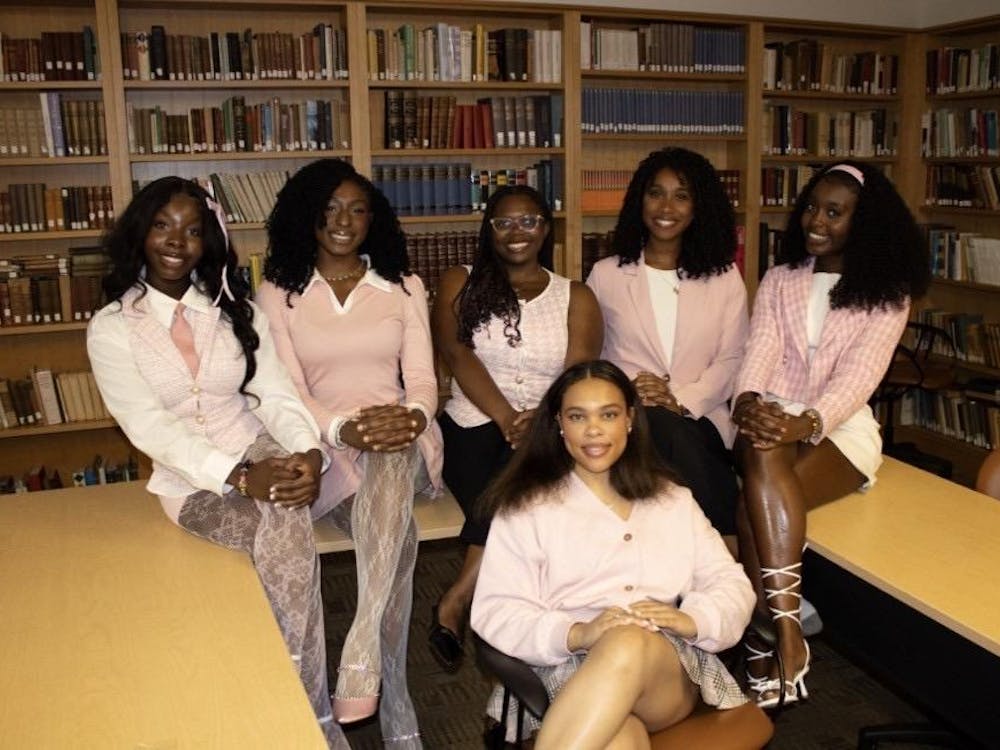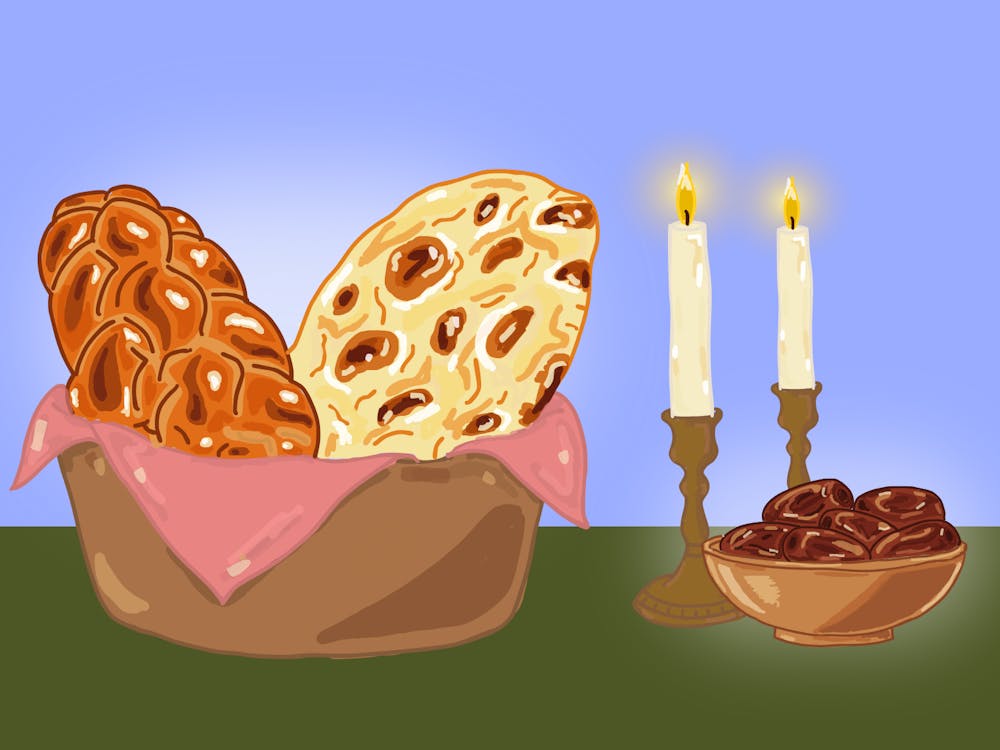Night is the most common time for violence against women, whether it is in the form of domestic violence or sexual assault.
Tonight hundreds of University students and Charlottesville residents will gather to reclaim the night as a time of safety for the female gender and as a time to increase awareness of the prevalence of violence against women.
The University's 13th annual Take Back the Night protest also will provide an opportunity for the survivors of such attacks to share their stories.
The rally serves as a time for education and for celebration.
"We use a lot of different kinds of performers," said second-year College student Lara Eilhardt, vice president of the University chapter of the National Organization for Women and this year's head of programming. "Diversity is important because we want to connect with as many different people as possible."
Beginning with a performance by the local Jan Smith Band, the rally will include two skits from the Vagina Monologues and speakers from the Shelter for Help in Emergency, the Lesbian, Gay, Bisexual, Transgender Union and One-in-Four.
"It's not purely a solemn event," Eilhardt said. "It's about celebration and empowerment - women are not only victims but in the world doing things. We tried to put together groups of people who represent the goals of promoting empowering women and recognizing victims."
When the main event begins, the bullhorns come out, and the rally becomes a march to the steps of the Rotunda.
"People say the march is the most fun part," said fourth-year College student Kate Hendricks, president of the University chapter of NOW. "It's raucous. It's a fun combination of people - students, community members, little kids. It gets loud and wild."
Together, protesters' voices unite as one, drawing cheers from passing cars and patrons in outdoor restaurants.
Claire Kaplan, the sexual assault education coordinator at the Women's Center, said the march can be heard from the Rotunda steps once it reaches the Corner.
"It just goes on and on," Kaplan said. "Nobody in the march can see exactly how long it is. It isn't the same experience if you don't go to the march. It's such a high, a real feeling of reclaiming the space."
With the energy high and the spirits of the participants stronger than ever, the rally continues with the more serious part of the evening - the vigil.
Survivors of domestic and sexual violence are invited to stand up on the steps of the Rotunda and share their stories, anonymously, with the group of candle-holding onlookers.
"It gets driven home to everyone that the one in four statistic is not bull," Hendricks said. "You see how many people it actually touches."
This part of the program, the speak-out, originally was not supposed to be a part of Take Back the Night, but now it has become a tradition at the University.
"It makes something that's really abstract very real," Kaplan said. "It's people you know talking about experiences that are very moving."
For some victims this is the first step. Speaking out about their experiences can be the beginning of a tough healing process.
"It can be healing for some people," Hendricks said. "It's very brave."
However, there also are worries about survivors who share, and then regret it later.
"People do get caught up in the moment," Kaplan said. "No one should feel pressure. They have to feel ready for it."
It's a step that is the hardest to make. As such, spontaneity sometimes is not the best choice.
Kaplan suggested preparing something in advance for anyone who feels they might be moved to get up and speak, whether it be a poem that they wrote or a song.
"It can be good for them," Kaplan said. "It's something just for survivors - everyone else has to just listen. It's a good experience for the people listening."
It also can be a tough experience.
Sexual Assault Resource Agency and Sexual Assault Facts and Education volunteers also will be on hand during the evening, marked by reflective armbands, to serve as resources for anyone who needs them.
"It can be very traumatic, especially for people who may not have realized how connected to the problem they are," Hendricks said.
Despite these issues, witnesses said the speak-out is one of the most powerful portions of the protest.
"Every year I've had a friend get up," Hendricks said. "I had no inkling they had had these experiences. They're doing everyone there a favor by lending some insight."
Kaplan agreed.
"The whole purpose of a speak-out is to give a voice to a voice that is silent - a lot of survivors are silenced in our culture," she said.
Although the protest is organized by NOW, many other groups contribute as well. Among them is the University's men's sexual assault education group, One-in-Four.
More traditional Take Back the Night protests do not include men, although protests in cities as small as Charlottesville often do.
In large cities, such as Washington, D.C., a parallel rally for men is held.
"Women don't need men to protect them from rape," Kaplan said. "They need men to take responsibility for their behavior and for their brothers' behavior."
Fourth-year Commerce student Gordon Braxton, who will speak on behalf of One-in-Four at the rally, said he recognizes the sentiments felt by the female gender regarding this issue. He sees it as his group's responsibility to educate men and increase awareness.
"It's a tangible reminder of why we do the work that we do," Braxton said. "It's easy to get caught up in abstract terms. This is a reminder that sexual assault happens here at home, at U.Va."
Eilhardt agreed that men's presence is an important part of the protest.
"Guys are for the most part the sources," Eilhardt said. "Overcoming this problem requires working together."
Although there's no picketing or boycotting, the rally and march of Take Back the Night do constitute a protest.
"We're protesting a society that allows dominance so that one in four women are raped before they're 18," Hendricks said. "It's unspeakable."
Kaplan added the University community, in particular, is a place where sexual assault are not nonexistent.
"It's a protest to change the culture, change the climate of the University and to hold the perpetrators accountable," she said.
Take Back the Night began in the late 70s in New York City as a protest directed at several murders of women. It since has spread to many other cities.
"It originally had nothing to do with colleges," Kaplan said. "It's really evolved."
In the end, the main goal of the organizers is to educate the community about the issues surrounding violence against women and also to protest the prevalence of those issues in the University community.
"It's a problem no one can deny," Eilhardt said. "By coming out and supporting the rally you're doing something."
The University's 13th annual Take Back the Night protest will begin at 6 this evening with a rally at the amphitheater on the Downtown Mall. The march to the steps of the Rotunda will begin at 8 p.m.






